Datacenter Service Providers Stand In Favour Of Data Localization
By MYBRANDBOOK
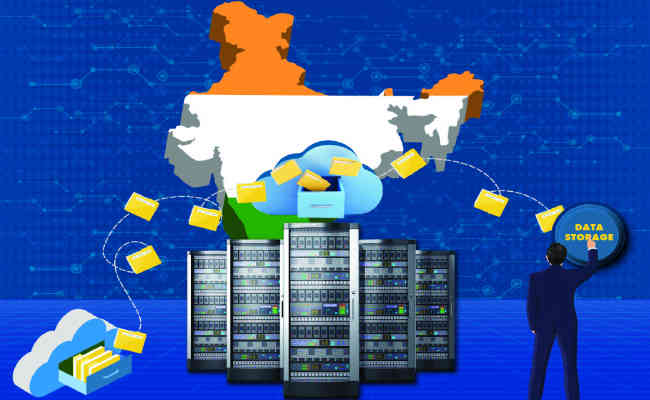
India was at 40,000 petabytes in 2010, in just a period of 10 years, it is to shoot up to 2.3 million petabytes by 2020 — twice as fast as the global rate. Mumbai, Bengaluru, Chennai, Delhi, and Hyderabad will be the major cities driving data center growth.
As we all know that data is the ‘new oil’ at present across the globe. It holds immense importance for every individual and organization. Data plays a significant role in every decision making of an organization. Data can be both personal and non-personal and privacy of that data is the fundamental right of the owner as per the Supreme Court of India. And this gave rise to Personal Data Protection Bill 2019.
Ravi Shankar Prasad, Minister for Communications, Electronics & Information Technology and Law & Justice, Govt of India said, “A good data center infrastructure is critical for a robust digital economy. India is rising high in the quest of data security, data use and data innovation. For the success of Digital India, we must become a big global Data Refinery – data cleaning, data processing, data innovation and research – and all of this will need to be done keeping in mind data privacy laws. We shall never compromise on the data sovereignty of India. The data economy has a lot of potential and in all its promise – a good data center is the pillar it builds on.”
For a populated country like India, protection of personal data is important. So as a nation, India needs a data localization policy. It is important to make sure that the critical and sensitive data of the country’s citizen should be stored locally within the border.
All companies categorized as public company, private company, corporate bodies, state entities, data fiduciary, data processors registered in India and offering services or good to individuals in India are required to comply with the Personal Data Protection Bill 2019.
 “Today data is the single largest asset of a country. Critical Personal data of citizens and their financial, health related parameters and other related need to be protected. India is world’s largest democracy with over 1.38 billion people and hence protecting personal data is essential. Hence, as a nation India needs a data localization policy. It is important to ensure critical and highly sensitive data of Indian citizens is protected, especially their sensitive data related to health, financial, biometric, affiliations etc. and any other data categorized as sensitive and/or critical should be stored locally within India,” feels B.S.Rao, Vice President, Marketing, CtrlS Datacenters.
“Today data is the single largest asset of a country. Critical Personal data of citizens and their financial, health related parameters and other related need to be protected. India is world’s largest democracy with over 1.38 billion people and hence protecting personal data is essential. Hence, as a nation India needs a data localization policy. It is important to ensure critical and highly sensitive data of Indian citizens is protected, especially their sensitive data related to health, financial, biometric, affiliations etc. and any other data categorized as sensitive and/or critical should be stored locally within India,” feels B.S.Rao, Vice President, Marketing, CtrlS Datacenters.
Further adding to it, he says, “All business entities who fall in the categories as detailed in the Personal Data Protection Bill 2019 are now planning to store the data locally. In fact, they may have to implement data sharding - a process which breaks up large data tables into smaller chunks referred to as shards that are spread across multiple servers deployed in multiple locations.”
Recently the infrastructure major, The Hiranandani Group entered the data center space with Yotta Infrastructure, plans to build 3 data center parks across Mumbai, Navi Mumbai and Chennai with a capacity of 60,000 racks. The Adani Group has also committed to develop large data center parks in Andhra Pradesh over the next 20 years. Existing data center players are planning to ramp capacities and international players like Colt and Bridge have also announced their first data center project in India.
DATA LOCALIZATION
If we scrutinize the reason behind data localization initiative then we can see that the prime reason is data security which means protecting national interest and citizen’s right to privacy. And for this a strict law is a requisite.
 “Data localization is the “What” piece of the puzzle. If we look at the core or the “Why” of this initiative, we will see that` it is ultimately about data security which is necessary for safeguarding national interest and every citizen’s right to privacy. That being said, what is more important is the robust implementation and enforcement of the law using appropriate technologies. We have heard many a times about the Aadhaar Data being leaked, and if that is a fact then it clearly proves that simply having data to reside within the nation does not solve the issue of it being not getting stolen and used in inappropriate ways. Therefore, I believe that Data Localization law is an important step towards protecting the sovereignty of the nation but only if equal importance is giving to the security aspect of it. One may always debate about the economic impacts it may have on the nation, but then again it can be argued both ways,” explains Dr. Rajeev Papneja, Chief Growth Officer, ESDS Software Solution.
“Data localization is the “What” piece of the puzzle. If we look at the core or the “Why” of this initiative, we will see that` it is ultimately about data security which is necessary for safeguarding national interest and every citizen’s right to privacy. That being said, what is more important is the robust implementation and enforcement of the law using appropriate technologies. We have heard many a times about the Aadhaar Data being leaked, and if that is a fact then it clearly proves that simply having data to reside within the nation does not solve the issue of it being not getting stolen and used in inappropriate ways. Therefore, I believe that Data Localization law is an important step towards protecting the sovereignty of the nation but only if equal importance is giving to the security aspect of it. One may always debate about the economic impacts it may have on the nation, but then again it can be argued both ways,” explains Dr. Rajeev Papneja, Chief Growth Officer, ESDS Software Solution.
India comprises one third of social media users and people are using free apps extensively through which they are sharing too much of personal information. Moreover, these companies do not store their data within the country which indicates that local laws will not be applied on them. With data localization initiative the government is trying to protect critical data.
 “India is on the verge of losing its digital independence. With the rampant usage of free apps, the users are inadvertently sharing too much information about themselves. The stolen information has created companies which are larger than many countries themselves! It is imperative that the laws of land are applied to these businesses so that we can avoid misuse of data. One third of social media users are from India and none of these companies host the data in the country and hence no local laws can be applied on them, nor is there an effect mechanism to put together a global framework of laws! I believe Government is doing the right thing to ensure at least critical data is actually stored within the country by businesses,” says Ranjit Metrani, Head – Sales and Pre-Sales, NxtGen Infinite Datacenter.
“India is on the verge of losing its digital independence. With the rampant usage of free apps, the users are inadvertently sharing too much information about themselves. The stolen information has created companies which are larger than many countries themselves! It is imperative that the laws of land are applied to these businesses so that we can avoid misuse of data. One third of social media users are from India and none of these companies host the data in the country and hence no local laws can be applied on them, nor is there an effect mechanism to put together a global framework of laws! I believe Government is doing the right thing to ensure at least critical data is actually stored within the country by businesses,” says Ranjit Metrani, Head – Sales and Pre-Sales, NxtGen Infinite Datacenter.
 Sharing his views on data localization Jatinder Singh Pabla, VP, Sales and Marketing, STT GDC India says, “At STT GDC India, we believe that storing data locally allows for reduced network latency and apart from helping organizations to comply with government regulations. The terms of Data localization introduced in the bill asks that a copy of the personal data be stored in servers/data centres in India. Certain categories of data (to be notified by the central government/ DPAI) termed as critical personal data shall only be processed in a server or data centre located within the country.”
Sharing his views on data localization Jatinder Singh Pabla, VP, Sales and Marketing, STT GDC India says, “At STT GDC India, we believe that storing data locally allows for reduced network latency and apart from helping organizations to comply with government regulations. The terms of Data localization introduced in the bill asks that a copy of the personal data be stored in servers/data centres in India. Certain categories of data (to be notified by the central government/ DPAI) termed as critical personal data shall only be processed in a server or data centre located within the country.”
BEST PRACTICES
In line with the government’s initiative of data localization, the datacenter companies are following some best practices. Web Werks India completely support government departments across the country and also promotes ‘Made in India’ initiative.
 “Web Werks is part of the MeghRaj cloud initiative and one of the first few players to be empaneled by Government of India to provide Cloud & Data Center services for data localization and the digital India push. Web Werks actively supports the State government department of Maharashtra, Haryana, as well as central government departments across the country. Being a born in India company, Web Werks is promoting ‘Made in India’ initiative by indigenously build cloud technologies & DCs using best of breed international know how and partnerships,” highlights Nikhil Rathi, CEO and Founder of Web Werks India.
“Web Werks is part of the MeghRaj cloud initiative and one of the first few players to be empaneled by Government of India to provide Cloud & Data Center services for data localization and the digital India push. Web Werks actively supports the State government department of Maharashtra, Haryana, as well as central government departments across the country. Being a born in India company, Web Werks is promoting ‘Made in India’ initiative by indigenously build cloud technologies & DCs using best of breed international know how and partnerships,” highlights Nikhil Rathi, CEO and Founder of Web Werks India.
Talking about the best practices adopted by ESDS, Dr. Rajeev Papneja mentions that all their data centers are located in India and they do not believe in doing analytics on customer data. Elaborating on this he says, “As far as ESDS is concerned, we have always taken data privacy very seriously. We believe that we should do unto others what we expect them to do for us if were in their shoes. All our Datacenters are in India so there is no question of data going out of the nation and most importantly we do not believe in doing analytics on customers data and therefore we ask the customers to bring their own analytics tools and we will only provide them with the Infrastructure and any other platform needed.”
“In recent times, we have witnessed a number of robust aspects driving the market, like accelerated digitisation, the growth of user data, e-commerce, advances in the cloud, etc. These strong drivers along with the practice of storing data locally will provide Indian businesses with skilled talent at a lower cost. Multinational organizations, in particular, will have to reconsider their data management practices and come up with measures to abide by these restrictions and ensure compliance.
As a colocation service provider, we don’t process data while in rest or in transit. We maintain five layers of physical security and have necessary certifications and compliances in place that are mandated by regulatory authorities,” says Jatinder Singh Pabla of STT GDC India.
On this, Ranjit Metrani of NxtGen Infinite Datacenter views,“The big impediment for Government to force these companies to operate from India, is the digital infrastructure. Being the largest cloud provider based out of India, we are working closely with businesses with an intent comply with laws to migrate to India based digital infrastructure. Additionally, we are developing solutions that matter to the citizens of India, not just complying with evolving data-localization laws, but to protect the privacy of the individual. The first Global standard for privacy is now in place ISO 27701, specifies the requirements for establishing, implementing, maintaining and continually improving a privacy-specific information security management system.”
GROWTH
With the growing e-commerce segment because of the low cost of internet data, India has entered into the next phase of growth and to ensure better customer experience companies are planning to localize their data.
A recent CBRE report had stated that the datacentre capacity is expected to double in the next five years. The report also highlights that the facilities across tier I cities are expected to witness a supply addition of approximately 40% only in 2020.
“Indian e-commerce sector is stepping into the next phase of growth due to low cost of internet data, seamless availability of wireless internet on mobile and broadband. Today, India is home to 115 million online shoppers, 367 million social media users, an estimated 40 million OTT subscribers and about 300 million online gamers – they are distributed across metros, tier-2, tier-3 and rural areas. Hence to ensure all of them have a better experience most of the e-commerce players, social media companies, and online gaming companies will plan to localize their data and secondly will move closer to the customers in tier-2, tier-3 cities to provide low latency and enhanced customer experience through edge data centers. To address this growing market in India, we are planning to add 1,000 Edge Data Centers across Tier-2 and Tier-3 cities and support the expansion plans of such companies as they get closer to their customers,” sees B.S.Rao of CtrlS Datacenters.
Reiterating similar views Dr. Rajeev Papneja of ESDS Software Solution says, “India houses the fastest growing digital population and with Governments initiative of Digital India, there is no second thought that the growth is going to be exponential. We will be witnessing the real data explosion very soon in our nation. After demonetization, the way we transacted has been changed forever and today it is hard to find even a roadside tea stall who does not accept digital payment. Video content has become the new norm making the text way of explaining things almost extinct. Even without data localization, the growth would have been tremendous but with data localization I foresee it to be exponential in near future.”
Talking about the growth factors Ranjit Metrani of NxtGen Infinite Datacenter highlights, “The market will grow at a CAGR in excess of 25%, the profile of datacenters is changing, since the profile of compute infrastructure has changed. We now have a small super-computer with us, delivers 100 Terraflops of computing the performance and is sitting in half a rack. The growth will be significant in terms of power being consumed, not necessarily on the size of real-estate. India is very large country, there are 14 cities which have a GDP greater than many countries. Our thought process is to have three very large 50MW+ facilities and 11 smaller facilities with compute and storage infrastructure. We are also in the process of implementing countries first edge-cloud infrastructure at 236 identified locations, we may be able to deploy about 50 by the end of year.
The big demand for us comes not really from current business applications, but from the data being generated by IoT, CCTV and other applications. Gone are the days, enterprises are happy computing numbers, they are looking at video, speech and text analytics.”
Nikhil Rathi of Web Werks India observes, “BCP on Cloud has its own set of benefits with higher availability. Organizations can reap benefits due to the flexibility, scalability and uptime that the Cloud brings. Enterprise in India needs to optimise their return on investment, reduce IT budgets and cope with the security concerns. As per IDC report, by 2022, 30% of organizations in India will have invested in automation and development life-cycle management of cloud-native applications to realize the cost benefits and operational efficiencies. Growth in Cloud Services also means growth in Data Center business where the cloud is hosted. Education, basic healthcare, payments, communication, and essential services are shifting online. The 3rd party data centers house multiple Internet Service Providers (ISP’s) and Cloud Platforms, while facilitating a reliable and secure infrastructure for server colocation. This interconnected ecosystem allows organizations to maintain round-the-clock operability of their servers, at the same time ensuring scalability.
In the wake of the Covid-19, managed hosting and cloud computing have both proliferated in the past few weeks and there has been a tremendous growth in demand for co-location. Demand has increased by nearly eight times as companies moved equipment or placed urgent requests on data centers for equipment. Requests for virtualization and cloud infrastructure have also caused demand to surge more than usual.”
It is the next billion Dollar opportunity in India
Datacenter service providers support the government’s initiative of data localization and they also advocate to enact the Personal Data Protection Bill as soon as possible.
India’s push for data localisation, which require certain kinds of data to be stored within the country, has generated significant demand already as it is estimated that over 75% of this data now resides outside the country. Data centres may prove to be the next big opportunity in India .The industry had been growing at close to 30% in the last ten years, boosted by the introduction of 3G, 4G and move towards a connected, inclusive digital economy means more and more data is being generated across platforms such as Cloud and social media as well as accessed by more people using mobile technology. Given the number of customers, India needs 15 times more capacity. The data centre outsourcing market in India, currently pegged at close to $2 billion, is projected to grow at a CAGR of 25% to reach $5 billion by financial year 2023-24.
● Netmagic, is the oldest players in this space, was acquired by Japanese tech firm NTT a few years ago and remains among the biggest in this space, with further capacity expansions planned in Mumbai, Chennai and Bengaluru.
● Adani group said it would invest up to Rs 70,000 crore to set up solar powered data parks in Andhra Pradesh
● Oracle announced the launch of its Gen 2 Cloud region in Mumbai, with another planned in Hyderabad
● ST Telemedia Global Data Centres (STT GDC), which currently has a capacity of 70 MW spread over 2.14 million square feet and plans to grow further to 200 MW over 4 million sq ft, within three years.
● Hiranandani Group announce a Rs 14,000 crore investment plan.
● Reliance Industries partnering with Microsoft to provide cloud services to small and medium enterprises.
● Carlyle Group acquires 25% stake of Rs.$ 235 million for buying a quarter of Airtel’s Nxtra in India, which has 10 large data centres and more than 120 edge data centres provides customers with co-location services, cloud infrastructure, managed hosting, data backup, disaster recovery, and remote infrastructure management.
● Linode, a US based company which offers data centre solutions mainly to the software developer community, set up base in the country recently.
● Equinix Inc, has acquired the India operations of GPX Global Systems, Inc. in an all-cash transaction value of $161 million.This includes two data center campuses in Mumbai with more than 200 international brands and local companies, including the cloud service providers (CSPs), content delivery network (CDN) providers, all local carriers, 130 internet service providers (ISPs) and four internet exchanges.
India is riding this wave in the forefront, and is expected to attract significant investments in the time to come. As per McKinsey, core digital sectors in India, such as IT and digital communication services are projected to double in size by 2025 to contribute $355-435 billion to the economy.
The growing emphasis on digitalization, coupled with India’s local data-storage requirements, is fueling the growth of the data center market. Several Internet giants, including Google and Amazon, have set up data centers in India. Cloud adoption by small and midsized enterprises will increase the need for Indian data centers. The coronavirus pandemic has provided an additional boost, as companies invest in tools to maintain social distancing. Rapid digitization has opened up a massive growth opportunity for data centers in India.
“More than 80% of the users in India are mobile first consumers. For example, Google collects a staggering amount of personal information about its users than what the users realise. They remember every search performed, everywhere one goes, every video watched and now they started listening to our conversations – it is shocking and unsettling. Government should realise that India’s digital independence is at stake and move with urgent, make a start. Technology is moving so fast, it is also important that a committee reviews the law on a yearly basis and makes amendments as the scenery emerges. One time Personal Data Protection Bill will be woefully short of expectations, if there is no mechanism to adopt to change,” feels Ranjit Metrani, Head – Sales and Pre-Sales, NxtGen Infinite Datacenter.
“The Personal Data Protection Bill should get passed and in the wake of “Local pe Vocal”. It makes more sense to have India’s data stored locally and ensure that personal data is not stored or transmitted out of our borders to other countries. This ensures growth of our local Cloud and datacenter ecosystem. This growth and similar bills have shown the same benefits in China and even advanced countries like Germany. When other countries implement this we should go ahead and have our own version of the same,”feels Nikhil Rathi of Web Werks India.
DATACENTERS ADDRESSING THE NEEDS OF ORGANIZATIONS TO STORE DATA LOCALLY
ESDS: ESDS does not exist to simply provide power, cooling and space on rent. ESDS works to help organizations disrupt their industries using technology. Banking, Smart city and SAP HANA community clouds, iPas (Integrated Planning Automation System) for Government department etc are testimonials to this. Along with the Datacenter, there will be a lot of demand coming for Remote Infrastructure Management services, SOC services, multi cloud support and ancillary tools that will use data in various ways to create sense out of it and this is where ESDS will have a big play with its team of 200 people in R&D and 300 people providing managed services round the clock. With its Datacenters in Nashik, Mumbai & Bangalore, though ESDS is currently in the expansion phase with plans to setup more DC sites to support the growing demand, we should also consider that the servers of today are coming with a configuration such that they can consolidate the infrastructure of last decade in 10% of the DC space today.
NxtGen Infinite Datacenter: Globally, the IT infrastructure is refreshed in the 4th/5th year. Every year, there is old infrastructure retired and new infrastructure is added. The way to approach it is ensure that the new refresh happens in India, rather than somewhere else in the world. Organizations should look for the potential that India has over the long-term and make the commitment. India has very low penetration of insurance, there is a big effort to move to digital financial transactions sponsored by Government, and impact of digital has just started in India.
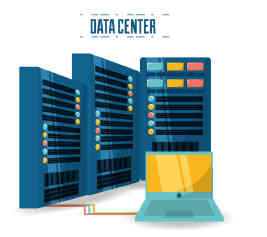 CtrlS: Well there is always a resistance to change. The proposed Indian Personal Data Protection Policy 2019 has evoked the emotions - shock, surprise, anger. But it is important to realize that GDPR was successfully implemented in Europe – despite the resistance all businesses had to comply. The same applies to India. All those business entities who are mandated to comply will have to invest in servers, network equipment, racks, security tools and processes and collocate their infrastructure and applications.
CtrlS: Well there is always a resistance to change. The proposed Indian Personal Data Protection Policy 2019 has evoked the emotions - shock, surprise, anger. But it is important to realize that GDPR was successfully implemented in Europe – despite the resistance all businesses had to comply. The same applies to India. All those business entities who are mandated to comply will have to invest in servers, network equipment, racks, security tools and processes and collocate their infrastructure and applications.
At CtrlS, we are enhancing capacities across Mumbai, Delhi, Hyderabad, Bangalore, Chennai to ensure the growing demand due to localization is met. Besides, we have brought in automated processes at our data centers to ensure higher efficiency and productivity. One of the other areas that we are focused is innovations – we have had 80 innovations in energy efficiency – this has resulted in industry lowest PUE of 1.38, our power tariffs are also lower as a result we are now equipped to offer our data center facilities with cost savings of 20% to 30% and in some cases even higher. We offer carrier neutral data center facilities backed by robust network (N+N) redundancy backed by multiple fiber paths. Lastly, Our data centers are all Rated-4 Hyperscale facilities hence we offer highest industry SLA of 99.995%, besides this we are deploying a 200 MW solar plant to ensure we reduce the carbon footprint.
STT GDC India: Customers can benefit from the economy of scale that is offered by STT GDC India. It is evident that the scale brings cost optimizations as well.
Customers can benefit from our design and operational excellence. We are trusted with the mission-critical architectures of some of the top companies offering cloud, social media, OTT and financial services. We have an extensive number of checks and measures along with elaborate redundancy system to provide all our customers’ up to a 100 percent guaranteed uptime. We have built our best practices over the last 14 years and all this is offered to our customers as part of our services.
Customers can benefit by riding on our growth plans and reducing their CAPEX. As part of our growth plan in the next two years, we will offer more than 200 MW IT load to our customers. All this capacity is available to our customers on a consumption basis which reduces the CAPEX requirements for our end customers. This also means that the capacity is available when the customer needs it without waiting for multiple years of the build cycle.
 Additionally, we help businesses run during tough times such as Covid-19. During the lockdown, data centres like us were given special status of “essential services” along with special passes for movement of personnel and other allowances and permissions. This, in turn, enables us to maintain, run and secure the data requirements of our clients and ensuring the smooth functioning of their businesses. Instead of creating personal structures, especially for large corporates, third party data centres are a better option as we already come equipped with the necessary requirement.
Additionally, we help businesses run during tough times such as Covid-19. During the lockdown, data centres like us were given special status of “essential services” along with special passes for movement of personnel and other allowances and permissions. This, in turn, enables us to maintain, run and secure the data requirements of our clients and ensuring the smooth functioning of their businesses. Instead of creating personal structures, especially for large corporates, third party data centres are a better option as we already come equipped with the necessary requirement.
Web Werks India: One of the greatest myths relates to compliance which is compliance with the requirements of data localization be too expensive for small and medium-sized enterprises and entrepreneurs with studies suggesting a 30-60% rise in costs. However, if it didn’t increase costs for other countries why would it increase the costs in India. The cost of keeping data outside India will be the same as keeping data inside the country. In fact, with newer hardware implemented in the country, it’s not really a cost. In some cases, there might be a marginal increase in costs. However, the efficiency of data performance when stored locally covers up for these costs. There would also be a marginal cost of bringing the data here but that is basically the cost of any lift and shift and there are OPEX models available in the country which makes it easier for countries to move their data.
AT LAST…
Data localization does not only mean to keep the critical data within the boundaries but also protects the Indian citizen’s right to privacy. Government should gear up to pass the Personal Data Protection Bill which will help to protect data as well as create wider opportunities for the datacenter ecosystem. At present the datacenter service providers are witnessing growing demands from their customers as India has stepped into next phase of growth. Other countries have also follow similar ways and got benefits. So with this bill into force we are hopeful that India too will get benefits from it.

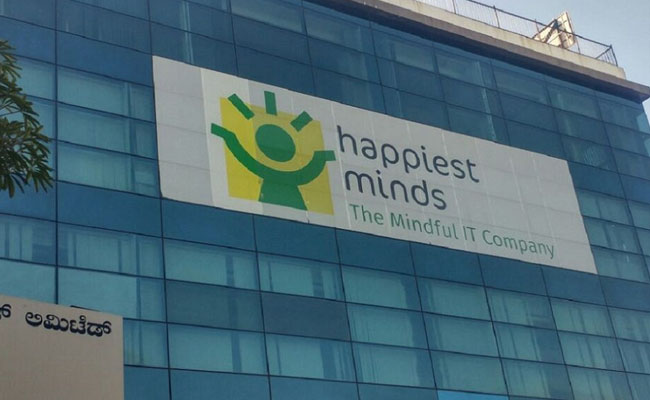
Happiest Minds brings in an innovative GenAI chatbot
Happiest Minds Technologies has announced the new GenAI chatbot - ‘hAPPI...

Government mandates encryption for CCTV cameras to ensure netw
In the wake of issuing an internal advisory on securing CCTV cameras at g...
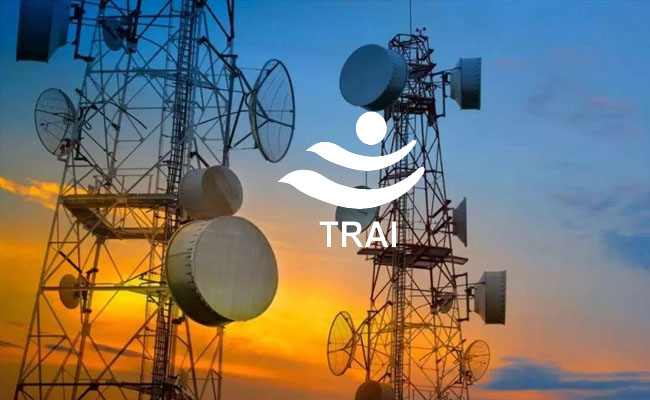
TRAI recommends allowing only Indian entities to participate i
The Telecom Regulatory Authority of India (TRAI) has recommended that onl...

Galaxy AI is available on more devices with Samsung One UI 6.1
Samsung has expanded the range of smartphones to which One UI 6.1 and Gala...

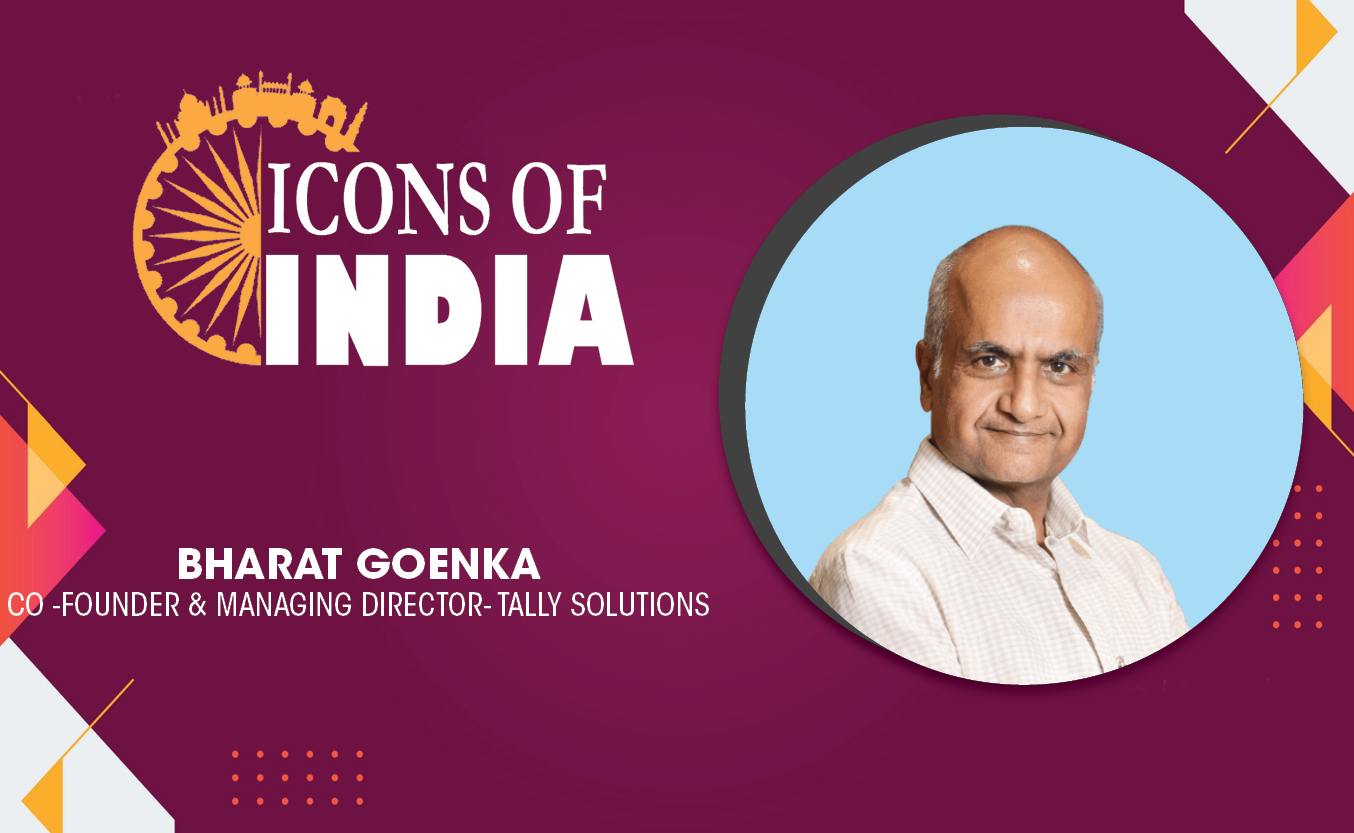
Technology Icons Of India 2023: Bharat Goenka
Bharat Goenka is the Managing Director of Tally Solutions. He is well ...
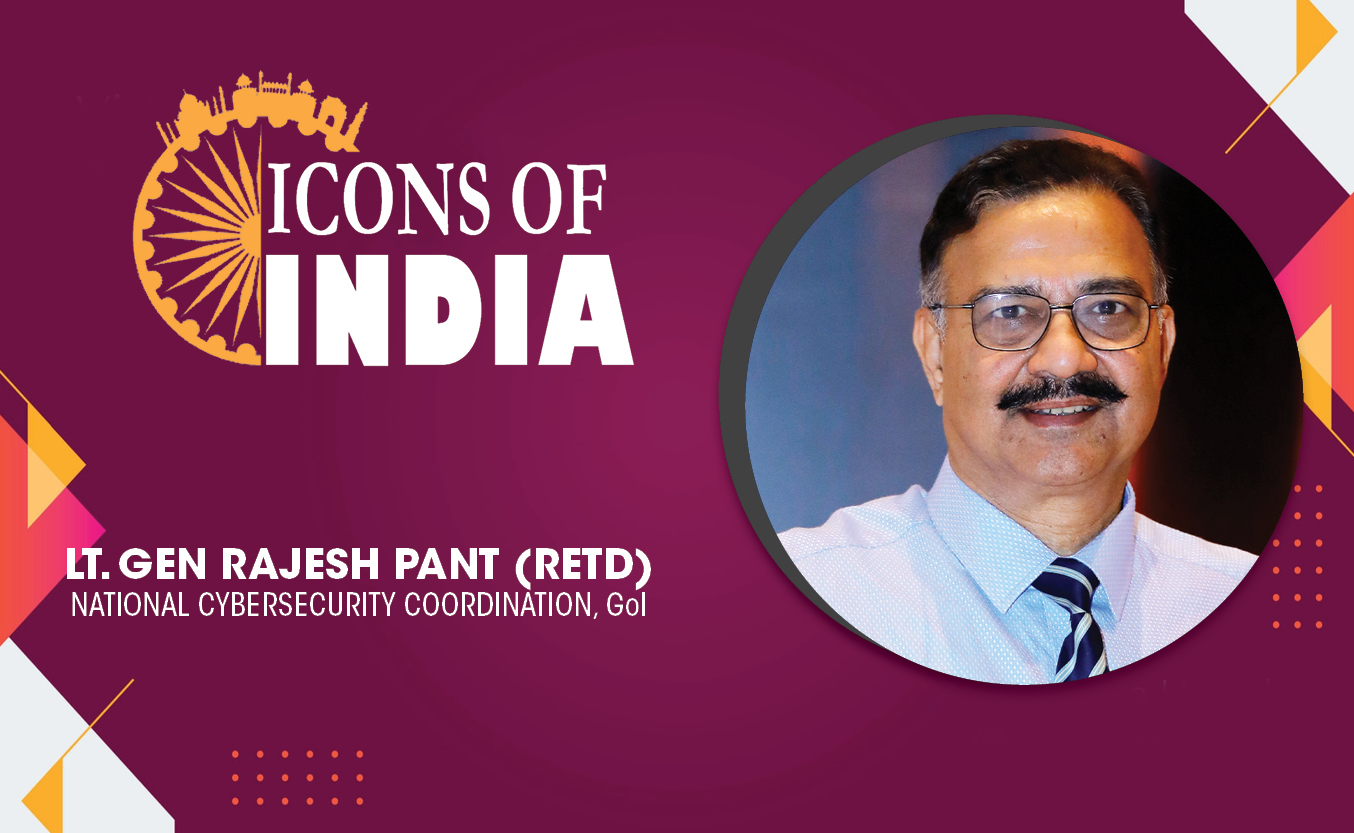
Technology Icons Of India 2023: Lt Gen (Dr.) Rajesh Pant (Retd.)
LT Gen(Dr.) Rajesh Panth (Retd.), National cyber security coordination...
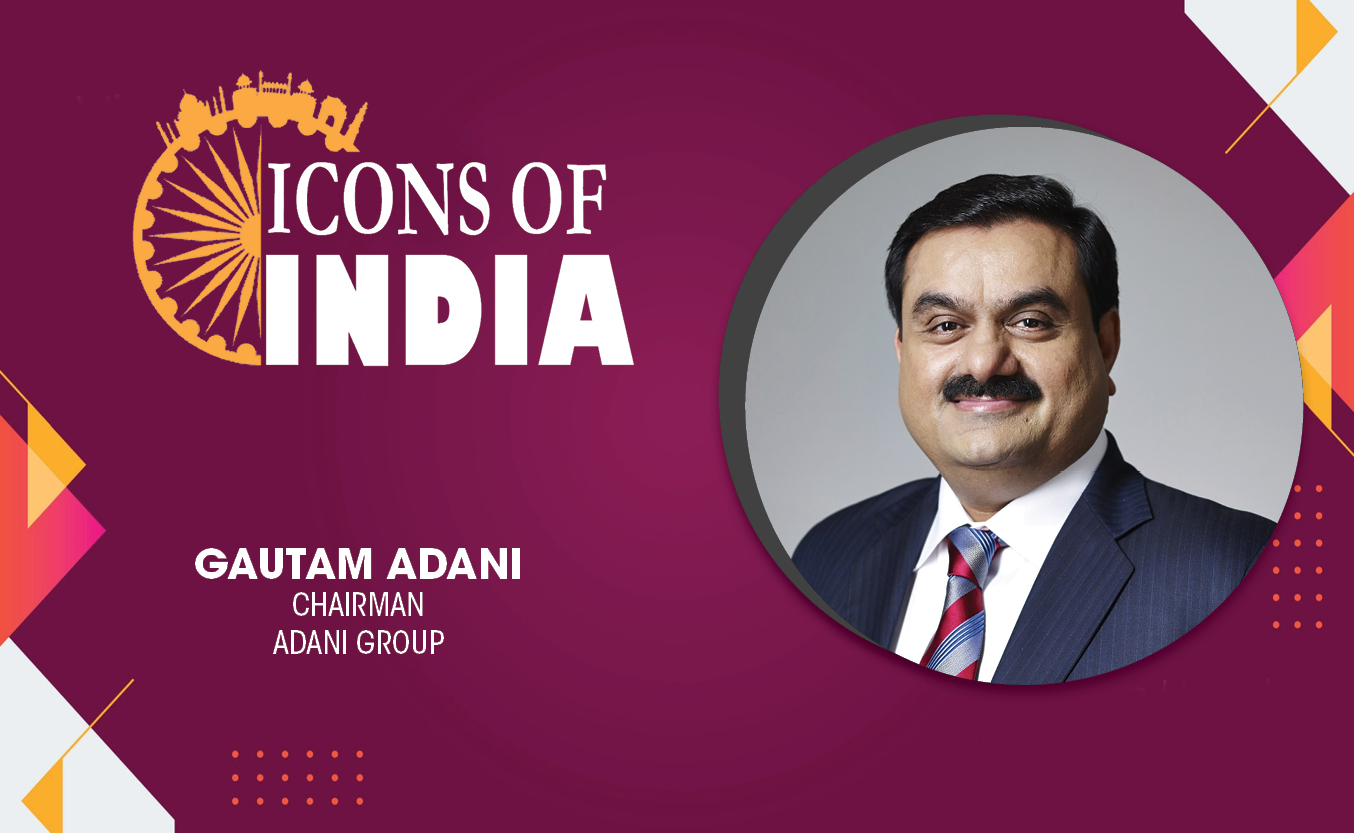
Technology Icons Of India 2023: Gautam Adani
Gautam Adani is the Founder and the Chairman of the Adani Group, an In...

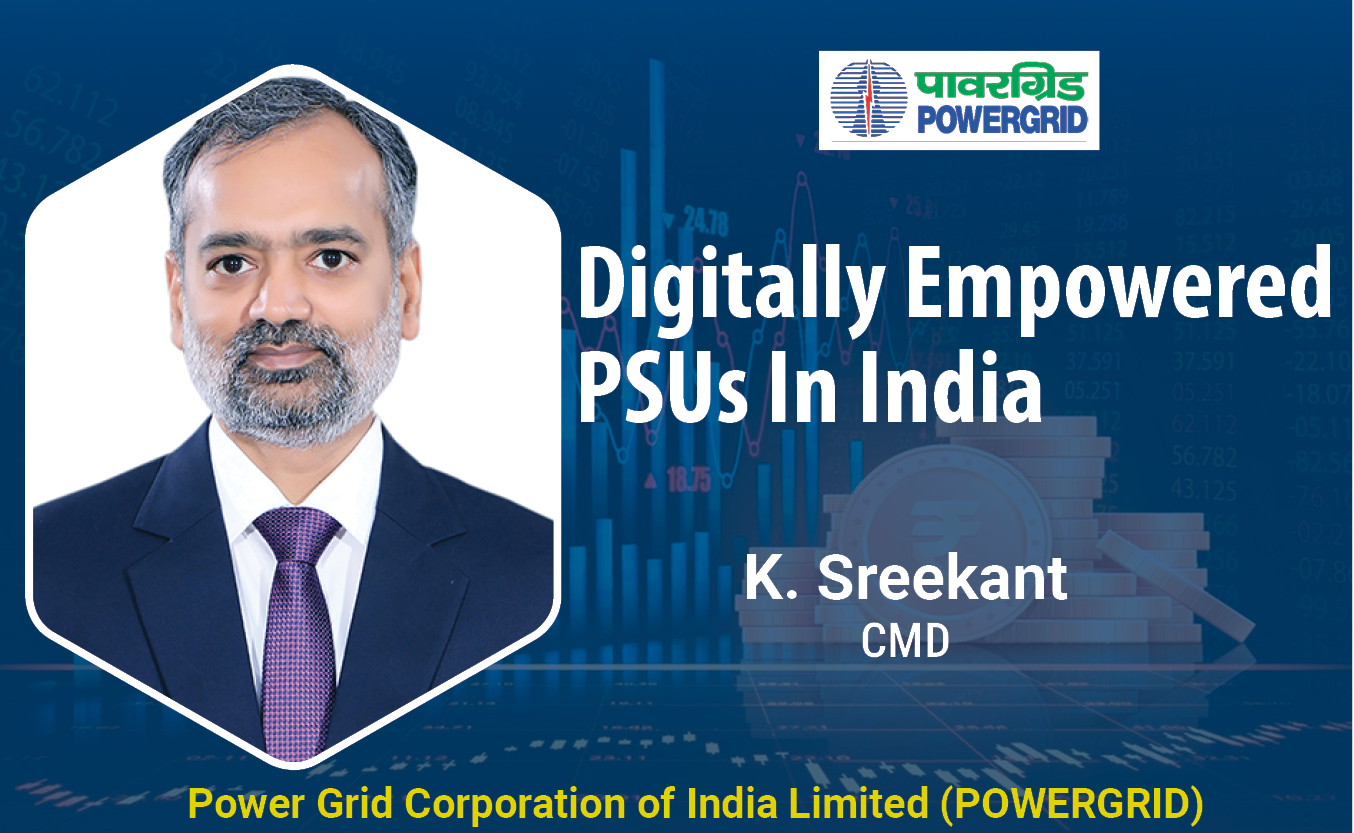
PGCIL transforming India with its wide power transmission network
Engaged in power transmission, POWERGRID or PGCIL is a stated owned In...
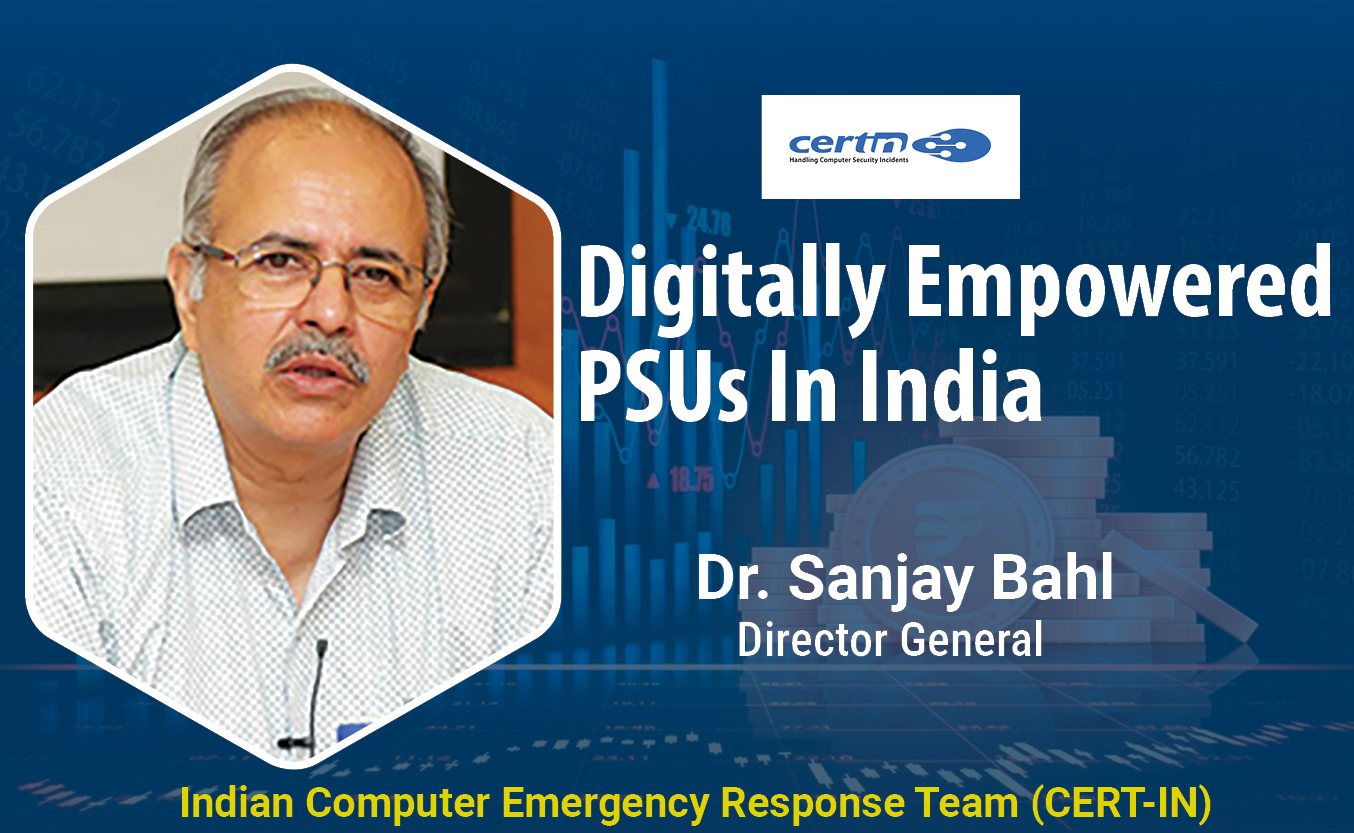
CERT-IN protecting the cyber security space of India
CERT-In serves in the area of cyber security threats like hacking and ...

ITI Limited widening its focus area
ITI Limited is a public sector undertaking company, has manufacturing ...


SUPERTRON ELECTRONICS PVT. LTD.
Supertron deals in servers, laptops, components, accessories and is a...

TEXONIC INSTRUMENTS
Texonic has carved a niche for itself in the Technology Distribution i...

BEETEL TELETECH LTD.
: Beetel is one of the oldest and most reputed brands in the Industry,...